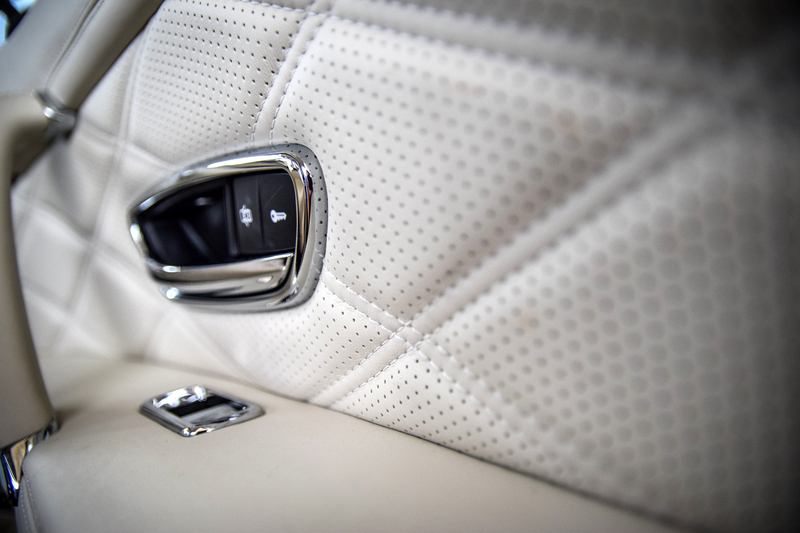Adopt These Tips to Remove Pet Odor from Your Home
Posted on 15/08/2025
Adopt These Tips to Remove Pet Odor from Your Home
It's undeniable that pets bring immeasurable joy and companionship into our lives. But with the cuddles and playtime come some not-so-pleasant side effects - one of the most common being pet odor in the house. Whether you live with an adventurous puppy, a sneaky kitten, or an energetic bunny, lingering animal smells can quickly overwhelm your home.
If you're searching for effective pet odor removal solutions, you're not alone. This comprehensive guide will introduce you to a variety of tried-and-true tips designed to eliminate pet odor from your home, ensuring a fresher, cleaner, and more welcoming environment -- for both you and your furry companions.
Understanding the Causes of Pet Odor in Your Home
Before targeting the smell, it's crucial to identify what causes pet odor in the first place. This knowledge helps you implement more effective odor elimination and prevention strategies.
Common Contributors to Pet Odor
- Urine and Feces - Accidents can happen, especially with young pets or older animals with health issues. These are the most potent sources of unpleasant smells.
- Dander and Hair - Even if your pet is house-trained, the skin cells and fur they shed can accumulate, producing a distinctive "pet smell."
- Dirty Litter Boxes, Cages, or Bedding - Neglected litter, bedding, or crates rapidly become odor hotspots.
- Saliva and Sweat - Dogs, in particular, release odor-causing compounds through saliva and the small sweat glands in their paws.
- Environmental Factors - High humidity or infrequent cleaning can amplify the presence and persistence of pet odors.
Recognizing these sources will help you remove pet odors from your house effectively by addressing the root cause.

Best Practices for Removing Pet Odor from Your Home
Now that you understand what you're up against, let's dive into the most impactful strategies to get rid of pet odor at home. These methods range from daily habits to deep-cleaning routines and smart product choices.
1. Maintain a Rigorous Cleaning Schedule
- Vacuum Frequently - Pet hair, dander, and dirt settle into carpets, upholstery, and crevices. Vacuum floors, couches, and pet bedding at least twice a week, using a vacuum with a HEPA filter for optimal results.
- Launder Pet Bedding - Wash your pet's bedding, blankets, and even soft toys in hot water weekly. Add a cup of white vinegar to the rinse cycle to help neutralize odors.
- Clean Litter Boxes and Cages - Scoop litter boxes daily and disinfect weekly. Wipe down cages with pet-safe cleaners, and replace bedding or substrate regularly.
- Wipe High-Touch Surfaces - Doors, walls, and baseboards can harbor pet odor. Use a damp microfiber cloth and a mild cleaning solution.
2. Treat Pet Accidents Immediately
- Act Fast - The quicker you address urine, vomit, or feces, the easier it will be to prevent permanent staining and odor.
- Blot, Don't Rub - Use paper towels or an absorbent cloth to blot up as much liquid as possible.
- Apply an Enzymatic Cleaner - These specialized cleaners break down uric acid crystals responsible for lingering smells. Let the product sit for the full recommended time before blotting dry.
- Use Baking Soda - Sprinkle baking soda over dry spots and let it sit overnight before vacuuming. This will help absorb any residual odor.
3. Improve Air Quality in Your Home
- Ventilate Regularly - Open windows and doors whenever possible to let fresh air flow and push out stagnant pet odor.
- Consider an Air Purifier - HEPA air purifiers trap pet hair, dander, and allergens. Some models even include activated carbon filters to absorb smells.
- Use Natural Deodorizers - Charcoal bags, citrus peels, or bowls of white vinegar can help neutralize odors from the air.
- Indoor Plants - Certain houseplants, like peace lilies and spider plants, can improve indoor air and help with odor reduction.
4. Tackle Carpet and Upholstery Odors
- Steam Clean - Rent a steam cleaner or hire a professional to deep clean carpets and large area rugs. High-heat steam kills bacteria and eliminates embedded odor.
- Baking Soda Refresh - Sprinkle baking soda evenly over carpets and upholstered furniture. Let it sit for several hours before vacuuming thoroughly.
- Pet-Safe Carpet Cleaners - Choose enzymatic or plant-based carpet shampoos for routine spot cleaning.
- Focus on Traffic Areas - Pay extra attention to spots where your pet spends the most time, such as favorite lounging areas or near doors.
5. Wash Your Pet Regularly
- Bathe as Needed - Dogs benefit from regular baths, but be careful not to over-bathe as it can dry out their skin. Consult your veterinarian for the best bathing schedule for your breed.
- Brush Frequently - Brushing removes loose fur, dander, and dirt before it settles elsewhere in your home.
- Paw Maintenance - Wipe your pet's paws after outdoor walks to prevent bringing in dirt and bacteria that contribute to odor.
6. Deodorize Soft Furnishings
- Pillow and Cushion Cleaning - Many decorative pillows and couch cushions are machine washable. Follow care labels for instructions.
- Upholstery Sprays - Use enzyme-based sprays or fabric refreshers designed to target pet odors. Always check for colorfastness first.
- Sun and Fresh Air - Whenever possible, let cushions, beds, and rugs air out in the sunshine, which naturally kills odor-causing bacteria.
Natural Remedies for Pet Odor Removal
If you prefer a chemical-free approach, several natural ingredients offer remarkable results for neutralizing animal odors in your home.
Vinegar Solution
Mix a solution of 50% water and 50% white vinegar in a spray bottle. Use this on hard floors, tiles, and washable fabrics to eliminate pet smells, then wipe surfaces dry with a clean cloth.
Baking Soda Paste
For stubborn odors on carpets or soft surfaces, mix baking soda with water to form a paste. Apply, let sit for at least 30 minutes, then blot or vacuum away.
Lemon Spray
Combine juice of one lemon with two cups of water in a spray bottle. The natural acidity and fresh scent help cut through bad smells on hard surfaces and pet toys.
Activated Charcoal
Place bowls or sachets of activated charcoal near odor hotspots. Charcoal naturally absorbs unpleasant scents from the air.
These natural pet odor removal methods offer safe, eco-friendly, and effective alternatives for sensitive households.
Preventing Pet Odor: Long-Term Solutions
Prevention is always better than cure, especially when it comes to keeping pet odor out of your home. Adopt these preventive measures to ensure your home stays fresh every day.
Ensure Proper Pet Hygiene
- Regular Grooming - Schedule regular grooming appointments or brush and trim your pet yourself to minimize shedding and dander.
- Ear and Dental Care - Bad breath and ear infections can add to household odor. Clean ears as directed by your vet and keep teeth sparkling with chews or brushing.
- Healthy Diet - A well-fed, healthy pet produces less waste and generally smells better. Discuss the best nutritional plan with your vet.
Designate Pet Areas
- Confine Messes - Use washable rugs and mats in your pet's favorite hangouts to protect floors and contain odors.
- Limit Access to Furniture - Restrict your pet from sleeping on your bed or main sofa, or use machine-washable covers that you can clean regularly.
- Outdoor Relief - Whenever possible, encourage your pet to do their business outdoors, and scoop up waste promptly.
Upgrade Home Furnishings
- Pet-Friendly Fabrics - Choose furniture with removable, washable covers, and opt for leather or tightly woven fabric that resists odors.
- Washable Paint or Wallpaper - If barking, drooling, or wiping causes wall odor, use washable wall finishes for easy clean-up.
Professional Pet Odor Removal Services
If you're dealing with persistent pet urine odor or deeply embedded smells, it may be time to call in the professionals. Here's what to expect:
- Deep Cleaning Techniques - Professionals use industrial-strength cleaners and high-powered equipment to treat carpets, upholstery, and even walls or floors.
- Ozone and Hydroxyl Generators - These machines break down and neutralize odor molecules in the air, offering full-house solutions for severe pet odor problems.
- Expert Assessments - A pro can identify hidden sources of smell that you may have missed and recommend targeted treatment options.
While professional services involve higher costs, they're often worth it for homes with significant issues or pet odor that simply won't go away.

Frequently Asked Questions About Removing Pet Odor
Is it possible to remove all pet odors from my home?
Yes, with the right strategies, you can significantly minimize or entirely eliminate pet odor in your home. Combining routine cleaning, targeted deodorizing methods, and preventive measures yields the best long-term results.
Are air fresheners effective for pet odor?
Air fresheners mask smells but rarely eliminate the underlying cause. For true pet odor elimination, focus on deep cleaning and odor-neutralizing solutions rather than just covering up the smell.
What should I do if the odor keeps returning?
Recurrent pet smells indicate an underlying issue (for example, a soiled carpet pad or poorly ventilated area). Address root causes, ensure all affected materials are cleaned, and consider professional help if problems persist.
Conclusion: Enjoy a Fresh Smelling Home with Pets
We all love our pets, but no one wants their home to be defined by unpleasant odors. By adopting these practical and proven pet odor removal tips, you can keep your living space smelling fresh and inviting--no matter how many furry friends share it with you.
Consistency is key. Establish a cleaning routine, address accidents quickly, invest in smart cleaning tools, and embrace natural remedies. With a bit of effort and the right approach, it's entirely possible to balance the joys of pet ownership with a comfortable, odor-free home.
If you follow these pet odor removal techniques, you'll enjoy all the benefits of having pets while maintaining a welcoming and sweet-smelling home for everyone.




